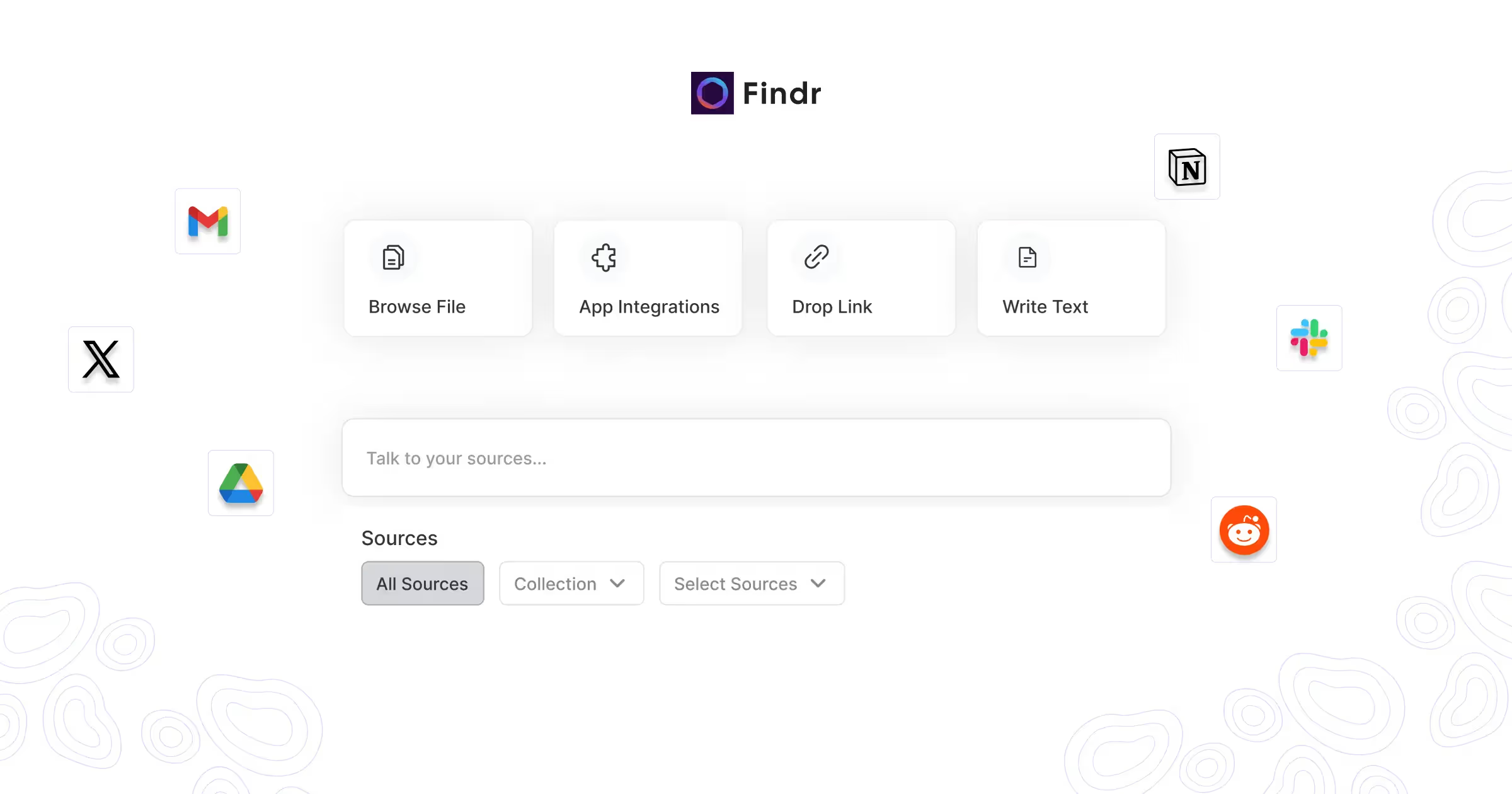
We envision a future where digital knowledge is seamlessly unified and transformed into actionable insight, empowering individuals and organizations to transcend information overload and achieve clarity in their work. Our mission is to build an intelligent, privacy-first workspace that functions as an extension of the human mind, enabling smarter decisions and accelerating innovation.
Through advanced AI technology and integration with diverse platforms, we are crafting a universal search and knowledge management system that not only aggregates but contextually understands and ranks information across all connected apps. This approach revolutionizes how people access and apply their collective knowledge, fostering efficiency and creativity in dynamic digital environments.
Findr AI is committed to creating tools that respect privacy while unlocking the full potential of data-driven work. By reducing repetitive tasks and connecting fragmented information, we are designing the workspace of the future where knowledge flows seamlessly and ideas are realized faster than ever before.
Our Review
We've been watching Findr AI for a while now, and honestly, it's one of those tools that makes you wonder why nobody built this sooner. At its core, Findr is trying to solve that maddening problem we all face: knowing the information you need exists somewhere in your digital mess, but spending 20 minutes hunting through Slack, Gmail, Drive, and Notion to find it.
What caught our attention isn't just another AI search tool—it's how Findr positions itself as your "second brain." That's not marketing fluff either; the platform genuinely feels like it's extending your memory across your entire digital workspace.
The Magic is in the Universal Search
Here's where Findr really shines: it connects to 10+ different apps and searches them all simultaneously with scary-good accuracy. We tested it with everything from buried GitHub issues to months-old Slack conversations, and the results were impressively contextual.
The AI doesn't just find matches—it ranks them intelligently based on relevance and your work patterns. It's like having a really smart assistant who actually remembers where you put things.
Privacy That Actually Makes Sense
We'll admit, we were skeptical about connecting all our work apps to another AI platform. But Findr's approach here is refreshingly different—they don't download or index your data. Instead, the search happens in real-time while respecting all your existing permissions.
This means your sensitive engineering docs stay locked down to the right people, and your personal notes remain personal. It's the kind of privacy-first thinking that makes enterprise adoption actually feasible.
Built for Teams That Live in Code
While Findr works for any knowledge worker, it's clearly optimized for engineering and SaaS teams. The integrations with Jira, GitHub, and various documentation tools feel native rather than bolted-on.
We particularly liked how it handles technical queries—ask about a specific API endpoint or bug report, and it'll pull relevant context from multiple sources. For teams drowning in technical documentation, this could be a genuine productivity game-changer.
The pre-seed funding from Campus Fund suggests investors see the potential too, though we're curious to see how they'll scale beyond their current engineering-heavy user base.
Feature
Universal AI-powered search aggregating data from multiple apps
Automated workflow support for engineering and SaaS teams
AI chat assistant for context-specific information retrieval
Privacy-first data handling with no data indexing or downloading
Productivity tools including meeting recording, web clips, and mind mapping








